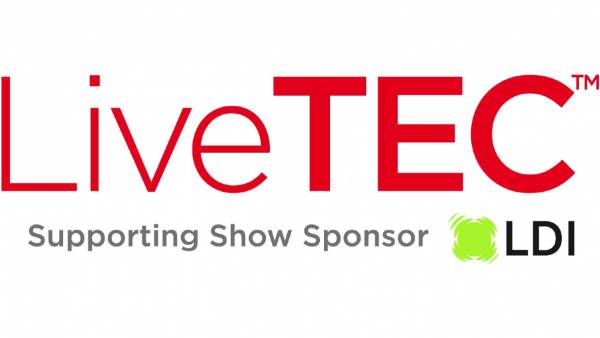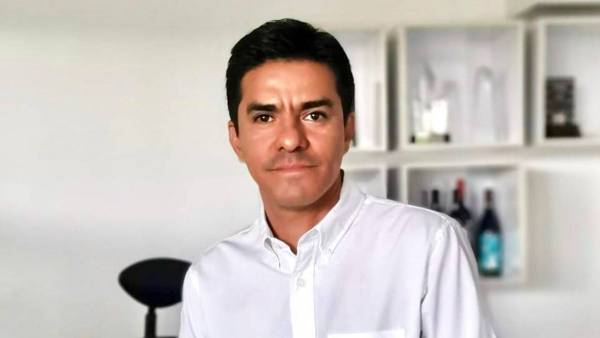Tepal '96, the annual convention of the organization that brings together Latin American cable operators, was held from June 5 to 8 in Casa de Campo, Dominican Republic, with the sponsorship of Telecable Nacional, Cable TV Oriental, Cable Television and the Government of the Dominican Republic.
The event consisting of an exhibition of programmers and equipment suppliers for the programmer industry and equipment suppliers for the cable industry and an interesting academic program, was considered a resounding success, given the increase in attendees and the very high level reached in the different talks. One of them, perhaps the one that caused the most controversy was how to face the competition that arose with DTH systems (direct-to-home programming). In this first report we will review some of the most important aspects discussed during the discussion.
The initial presentation was given by Mr. Francisco Javier Ramírez, president of Canitec (Chamber of Cable Operators of Mexico) who explored the different strategies to minimize the impact of DTH on cable systems. "Customers are becoming more demanding," Mr. Ramirez noted. The public will compare the service offered by cable, MMDS and DTH and will stay with the best. It is very important to have good quality, good prices and effective distribution systems."
Some of the strategies proposed by Mr. Ramírez for cable operators to face the competition of DTH is to have enough bandwidth to have a good number of channels; seek to have access to the same programming offered by DTH and from there choose the best mix that is created by the subscribers themselves need. Another important aspect is the approach to programmers to obtain good negotiations. You can also offer channels different from those of DTH, adding the local quota. A valuable tip is to make strategic alliances between Latin American cable operators producing exclusive channels for cable. "In the generation of channels we must take into account the following: although people seek to entertain themselves with foreign channels, they will always have a preference for a channel that originates in the locality, that is informing them of what happens there and that reflects the experiences of the people who live in the place. This possibility of generating local channels is a very important force because it is something that DTHs cannot do. I think that's the foundation for facing competition. In Mexico there are two companies created by cablers, one produces 2 channels, co-produces 2 and represents two others, has its own transponder and participates with a telport that owns PCTV which is the other company which produces 4 channels, co-produces approximately 8 others and represents 30 and so many channels in Mexico. That is to say that the cable operators buy the channels through PCTV, we do not negotiate directly with the programmers. The company is the one that negotiates for us and thanks to this system we achieve better services, better agreements and better prices".
"We must try to seek the opening of the systems," added the president of Canitec, "the bidirectional, offer additional services and promote intercommunication with other networks. In the very near future it will be very important to be able to count on all these tools. Providing utilities such as video on demand, digital music, interconnection of networks with other services, including banks, including access to the global Internet, are things that DTHs, not even telephone ones, can offer either. The speed at which the frequencies of data that passes the Internet through the cable run is much more effective. I had the opportunity to see in the United States download a file from the Internet on telephone lines and it took about 40 minutes through the cable it took a few seconds. Although the difference in costs is not so important, the future challenge is key.
Another point that must be considered is the legislation, since the idea must be promoted to governments or regulatory entities so that competition between the different participants of subscription TV (MMDS and DTH cable) occurs under the same parameters; for example, that programming and marketing are handled at equal costs; that no dumping or subsidization is made. In Mexico this is already happening. After having very strong conversations and campaigns with the Ministry of Communications and Transport, we have managed to make the similarity between the titles of MMDS, DTH and cable practically the same. I heard yesterday with satisfaction that something similar is happening in Argentina and that the government is asking that DTH has to be transmitted from local satellites. Undoubtedly, the strength of legislation to protect markets is very important on the other hand, if these things are not monitored, the currency leaks that can arise as a result of marketing and selling programming at undue costs will be impressive in the future."
DTH deserves more attention
After the intervention of the president of the Chamber of cable operators of Mexico, Alberto Arapé, president of the Chamber of cable operators of Venezuela, asked to speak. Mr. Arapé argued that the DTH systems to be implemented in Latin America deserve a lot of care. "In the case of Direct TV we are facing monsters of which they have already installed centers in Caracas, Sao Paulo and Mexico.
While there is a bit of arrogance in launching their systems, it is a reality we cannot ignore. It's not that we have to prepare for a fight, but for a real competition. Of course, DTH and cable are two very different complementary systems, with different strategies. What we must do is invest more money to optimize ourselves technologically and, most importantly, seek strategic alliances. Obviously this may mean that many small businesses disappear or merge. We have another important advantage and that is the great relationship with the programmers, we have to defend our good prices. Let's see if the programmers will help us offer competitive prices, being consistent with the fact that we were cable operators who made their economic success possible during the last years. Gentlemen, I do not share the $50 thesis. There is already talk that they plan to charge 25 or 21 dollars for the first 20 or 22 channels. As for the initial investment for the user to acquire the decoder and the antenna for that is the leasing, the equipment is rented and paid in 2 or 3 years. They forgive me if I seem pessimistic, but I know the DTH market from A to Z."
What we can do as cable operators, Alberto Arapé added, is to attack different segments of the market. We can go with our cable to densely populated areas, to multifamily units to be able to lower prices and offer interesting programming packages. Obviously there are other areas where the cable does not reach, which can be used by the DTH."
To the above, Francisco Javier Ramírez de Canitec, Mexico responded that he agreed with many of Mr. Arapé's proposals, but discussed the fact that these monsters can defeat the cable business. "Although Televisa is a very strong programmer in Latin America and worldwide, in Mexico it has 6 channels and we cablers have another 6, which I could tell you are as good as Televisa's: We have prepared, we created a company where we produce TV channels, we carry out advertising campaigns to position the name of the cable, as strong or stronger than DTH. The goal is for the people of Mexico to talk about cable. I do not agree with the issue of prices either. One thing is what they say and another the reality of costs. There is no company that does not go out to recover its investment and with a fee of 20 dollars I do not see it possible. We know what it means to mount a DTH system, it is more we are assembling it to compete on the same terrain. Mexican cable operators have everything to leave with a DTH: transporters, digital compressors, teleports, in short, if the authorization of the Ministry of Communications was given to us tomorrow, the day after tomorrow we could leave with the DTH.
What I want to emphasise and on that I agree with Mr Arapé is that we must come together to offer better prices. You can create international parameters that would be very helpful. The competition is strong, We have 6 channels for cable TV in Mexico. I put our programming at your service to power your systems at very reasonable costs.
Let us be the masters of our own destinies
Abraham Kahn Mexican cable operator also wanted to bring some interesting concepts to the discussion. "I agree with our president that we are not underestimating DTH, since this system cannot do everything for everyone nor can cable," he said. DTH is a foreign, universal television service, a common denominator that wants to cover from Patagonia to the Rio Grande. I believe that at the same time that this is his strength is also his weakness. I am sure that if we see our own Latin American markets we will discover that we are not the same, we do not like the same songs, the same music, we are different. And therein lies the strength of the cable.
In summary, I would like to stress that DTH will indeed be competition, but it will not replace cable. Logically we have to prepare ourselves to make our advantages more powerful and exploit the weaknesses of the competitor. And so I think we're going to be able to survive both. I invite the cable operators of Latin America so that through Tepal we form a cable association that gives us the strength to be the owners of our own destinies. Let's get it going.
























Leave your comment